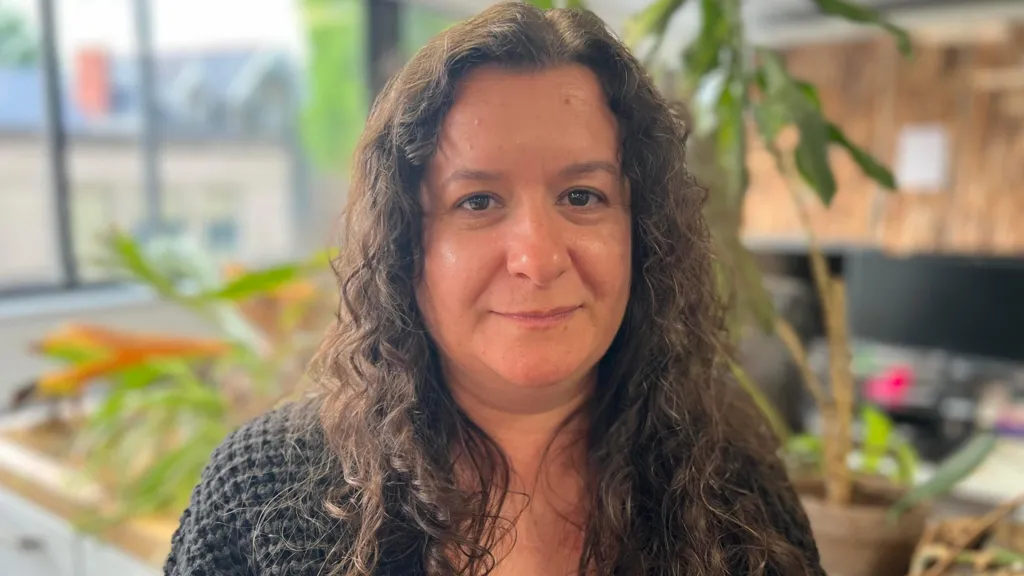Lucy said she had seen first hand how that online world could become real life, with her ex-boyfriend watching pornography daily.
She said: "I personally think that it made his behaviour and opinion of sex very aggressive and violent."
He also used apps to track her location.
"I didn't realise that that's not normal," she said. "He would say things like, 'I don't want you to get hurt or get kidnapped' so you need to have your location on for me so I can see where you are."
She said if she did not answer the phone immediately to him, he would "verbally abuse" and shout at her.
Deputy chief constable Katy Barrow-Grint, of Gloucestershire Police, said cases like Lucy's were not uncommon.
"Most weeks there will be cases presented to us where there are teenagers who are boyfriend and girlfriend, where there is physical or sexual violence, which would be classified as domestic abuse if they were over 16," she said.
Ms Barrow-Grint is keen to stress that crimes involving young people will always be investigated, even if an offence is not legally classed as domestic abuse.
A survey, carried out by the Youth Endowment Fund in 2024, revealed nearly half of all teenage children who had been in a relationship had experienced violent or controlling behaviours from a partner.
The charity, which was given £200m by the Home Office to fund and evaluate anti-violence projects, asked more than 10,000 children aged 13-17 in England and Wales about their experiences.
At the time, Jess Phillips, minister for safeguarding and violence against women and girls, described the survey results as "heartbreaking and deeply concerning".
The issues around the age that domestic abuse victims are recognised by law was raised in the House of Commons in January, following a campaign by the family of murdered 15-year-old Holly Newton.
Holly was repeatedly stabbed in an alley in Hexham, Northumberland, by her ex-boyfriend Logan MacPhail after she ended their relationship.
MacPhail, then aged 16, had become controlling and was stalking Holly, sending texts and phone calls up to 40 times a day.
In a statement provided to the BBC a Home Office spokesperson said that the government "is determined to root out" abuse as part of its mission to halve violence against women and girls in a decade.
"We are considering every option to fundamentally transform the system and address this issue head on, and that includes everything from supporting victims to looking at whether we need to change the law," they added.
Gloucestershire Police is now working with the Home Office on a pilot project looking at potential changes in the law.
"What we will do here is flag anything that comes to us that appears to be domestic abuse involving young people," she said.
"We're going to talk to young people about their experiences.
"One of the potential activities that could happen is lowering the age [at which domestic abuse is recognised] – but the evidence base that we are collecting here in Gloucestershire will help with the discussions around that."
For Ms O'Leary, a change in the law cannot come soon enough, to prevent younger victims "falling through the gaps".
"My fear is that by not having them classed as domestic victims, we're not understanding the pattern of coercive and controlling behaviour and instead viewing them as single incidents or linked in with bullying, knife crime or serious violence," she said.
As well as reviewing the age at which domestic violence can be recognised, there are also calls for more education around healthy relationships.
Debbie Beadle is chief executive of the Wiltshire-based charity FearFree, which supports more than 10,000 adult and child victims every year across the South West.
"I don't think we just should rely on laws," she said. "I think there's a danger in criminalising children and ultimately what we should be looking at is early intervention and education around what a healthy relationship is.
"It's about looking at the messaging that our young people are getting on social media, through the games they're playing, the conversations that they're having at schools."
'I experienced it myself'
Ms Beadle feels professionals and parents need to overcome the fear of having open conversations with children.
"I do think sometimes we are still trapped in not wanting to talk about it because they're children and we shouldn't be talking about this and that's not helping," she said.
Lucy agrees that education around abuse in teenage relationships needs to be improved.
"I didn't understand any of it. They don't talk you through it at school. You just don't hear about child on child abuse," she said.
"You hear about it between parents or older people. I didn't really know much about domestic abuse until I experienced it myself."
She said this was partly why she wanted to share her story and help others understand that abuse can happen at any age.
Tonight's Points West on BBC One will be taking an in-depth look at issues around online safety, with exclusive stories and expert studio guests. You can watch it live at 18:30 BST or afterwards on the BBC iPlayer.
